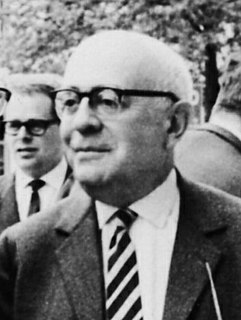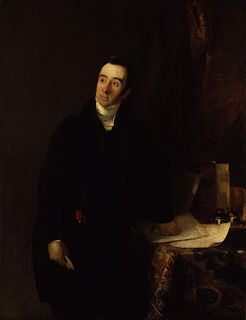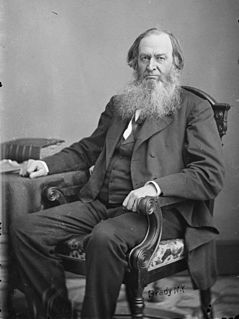A Quote by Theodor W. Adorno
The most powerful person is he who is able to do least himself and burden others most with the things for which he lends his name and pockets the credit.
Related Quotes
Listening is the oldest and perhaps the most powerful tool of healing. It is often through the quality of our listening and not the wisdom of our words that we are able to effect the most profound changes in the people around us. When we listen, we offer with our attention an opportunity for wholeness. Our listening creates sanctuary for the homeless parts within the other person. That which has been denied, unloved, devalued by themselves and others. That which is hidden.
Not selfishness, but precisely the absence of a self. Look at them. The man who cheats and lies, but preserves a respectable front. He knows himself to be dishonest, but others think he’s honest and he derives his self-respect from that, second-hand. The man who takes credit for an achievement which is not his own. He knows himself to be mediocre, but he’s great in the eyes of others.
Take a young man from Gaza living in the most horrendous conditions - most of it imposed by Israel - who straps dynamite around himself and then throws himself into a crowd of Israelis. I've never condoned or agreed with it, but at least it is understandable as the desperate wish of a human being who feels himself being crowded out of life and all of his surroundings, who sees his fellow citizens, other Palestinians, his parents, sisters, and brothers, suffering, being injured, or being killed. He wants to do something, to strike back.
What is it that is most beautiful? - The Universe; for it is the work of God. What is most powerful? - Necessity; because it triumphs over all things. What is most difficult? - To know one's self. What is most easy? - To give advice. What method must we take to lead a good life? - To do nothing we would condemn in others. What is necessary to happiness? - A sound body and a contented mind.
I believe that the unity of man as opposed to other living things derives from the fact that man is the conscious life of himself. Man is conscious of himself, of his future, which is
death, of his smallness, of his impotence; he is aware of others as others; man is in nature, subject to its laws even if he transcends it with his thought.
One of the commonest things to do with savings is to lend them to some Government. In view of the fact that the bulk of the public expenditure of most civilized Governments consists in payment for past wars or preparation for future wars, the man who lends his money to a Government is in the same position as the bad men in Shakespeare who hire murderers. The net result of the man's economical habits is to increase the armed forces of the State to which he lends his savings. Obviously it would be better if he spent the money, even if he spent it in drink or gambling.
A solitary ascetic is a symbol of the most cowardly egotism; a hermit who flees from his brothers instead of helping them to carry the burden of life, to work for others, and to put their shoulders to the wheel of social life, is a coward who hides himself when the battle is on, and goes to sleep drunk on an opiate.









































